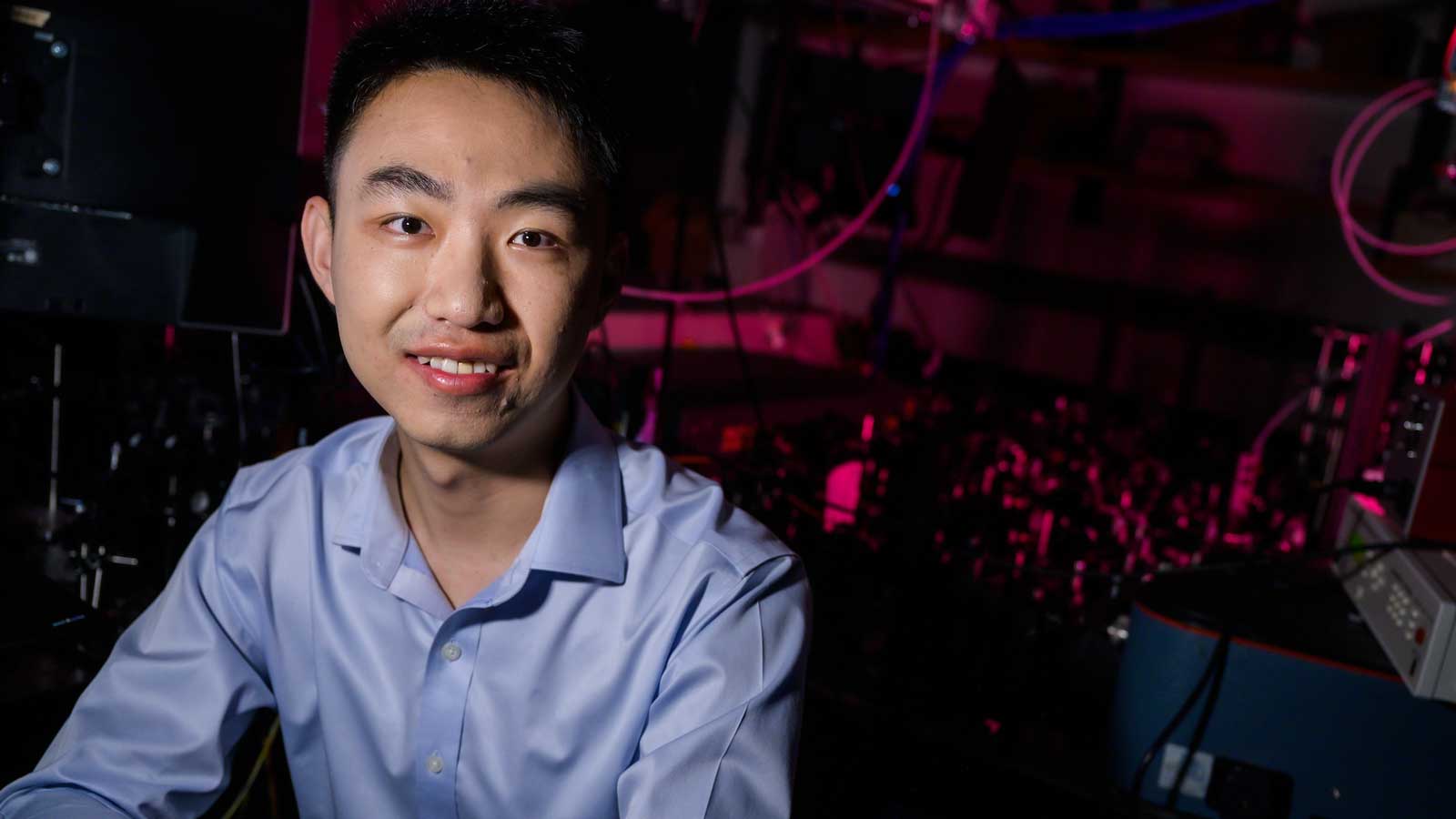The common sense-defying laws of quantum mechanics suggest a vacuum is not truly empty but contains constantly fluctuating waves of light.
And materials cooled to near absolute zero are not truly frozen but rather are filled with atoms in constantly fluctuating motion.
According to Hanyu Zhu, assistant professor of materials science and nanoengineering (MSNE) and the latest recipient of an NSF CAREER Award at Rice University, “Such fluctuations are usually negligible in daily life, though theoretically they can grow large when we reduce the wavelength of standing waves and pack them into a very small volume — called a cavity — compared with the wave’s wavelength. No need for energy to create new waves. We just collect existing waves from the vacuum.”
Zhu has received a five-year, $653,000 grant from the National Science Foundation for his proposal, “Probing Quantum Materials Modified by Terahertz Quantum Fluctuations.”
CAREER Awards are given annually to some 400 young scientists and engineers in the U.S. in support of “early career faculty who have the potential to serve as academic role models in research and education and to lead advances in the mission of their department or organization.”
According to recent theoretical and experimental research, these fluctuating waves may be sufficiently powerful to change such properties of materials as atomic structure, electrical conductivity and magnetism. Zhu hopes to answer some of the fundamental questions in what he calls “this new paradigm of fluctuation-modified materials.”
“We intend to leverage the natural mixture of electromagnetic waves and atomic vibrations – called phonon-polaritons – in many ionic crystals,” Zhu said. “Near the vibrational resonance, which is in the terahertz frequencies, the wavelength of the mixed wave shrinks, so the quantum fluctuation will be enhanced.”
Zhu plans to measure the fast quantum fluctuation of the light and matter inside micrometer-scale volumes at near absolute zero temperatures, and track the modified energy evolution and properties of the materials. He expects the results to provide insights into optimizing materials by harvesting quantum forces.
As part of the project, Zhu will create a modular graduate course to bridge the knowledge gap between existing materials education and the need to build quantum infrastructure. He will also recruit undergraduates from underrepresented groups in community colleges around the Houston area and work with high school teachers from the Houston Independent School District to design lessons about materials and quantum technology.
The research is part of NSF’s Big Idea of Quantum Leap and the National Quantum Initiative to build a quantum workforce for the future. The NSF-funded work will complement Zhu’s recent three-year, $2.5 million collaborative project probing quantum entanglement in magnets with Junichiro Kono, professor of electrical and computer engineering and co-chair of the Rice Quantum Initiative, and Kaden Hazzard, associate professor of physics and astronomy. The project was made possible by a $1.2 million grant from the W.M. Keck Foundation, matched by $1.3 million from Rice.
Zhu’s collaborators on the CAREER project at Rice include Kono; Pengcheng Dai and Han Pu, professors of physics and astronomy; Carolyn Nichol, associate research professor of chemistry and director of the Rice Office of STEM Engagement; Ramamoorthy Ramesh, professor of MSNE; Tong Lin and Rui Xu, third-year graduate students in MSNE, and other students in the MSNE and applied physics programs.
Zhu earned his Ph.D. in engineering physics/applied physics from the University of California at Berkeley in 2016 and, after two years as a postdoctoral researcher, joined the Rice faculty in 2018.

